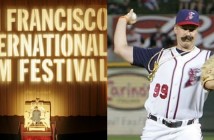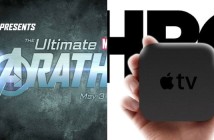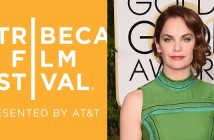Editor’s Note: Projecting features a selection of great film and television focused writing from around the internet.
Brian Byrd considers the implications of enjoying film and television with social flaws, for Pajiba:
Rather, entershament makes you feel like you’re precipitating social injustice by watching, enjoying, and overlooking these issues. Does buying for a ticket to Exodus or raving about “True Detective” despite their social flaws make me morally deficient? Do I exhibit sociopathic tendencies because I can watch a woman get raped in the background of a scene and not feel revulsion? I don’t think so. I hope not. Then again, my favorite character currently on TV gunned down a half-dozen middle school students while they sat in their classrooms. Yes, I may very well have multiple screws loose.
Sarah Todd digs up the hidden environmental message in Guardians of the Galaxy, for Salon:
Beauty isn’t a matter of much general concern in “Guardians.” The spaceships are bulky, the fashions functional, the galactic landscapes mostly industrialized. But thanks to Groot, the characters occasionally experience a sense of awe. Twice, Groot bristles his branches and produces a cloud of tiny, light-filled spores that envelope his friends. It’s the kind of twinkly, hipster-wedding atmosphere that would launch a thousand Pinterest pages. Groot’s generally quick-witted companions are struck silent by the gesture, jolted out of their schemes by scenery that’s unexpectedly lovely and larger than themselves.
Sean O’Connell recounts how Ghostbusters forever changed he and his mother’s relationship, for Cinema Blend:
And the thing is, 30 years ago, I was getting those jokes. I understood that calling someone “dickless” was hysterical. Movies that repeatedly used “shit” and “asshole” were still pretty new to my 10-year-old ears (and it was glorious). OK, I didn’t get the blowjob joke then, but there was more than enough “understanding” happening in that theater that day that my mom realized, ever so slightly, that a tiny sliver of my childhood was seeping away on that day, during that movie. And she took me to it.
Brad Becker-Parton breaks down Modern Family’s four consecutive directing Emmy wins to figure out if it really is the best directed comedy on TV, for Splitsider:
Looking even further back, the last time a network show director, in which directing is historically more like house-painting than Picasso, lost to a cable director is in 2004, when Curb Your Enthusiasm took home the prize for HBO (however I will not besmirch the Emmy voters’ 2004 selection of Barry Sonnenfeld’s Pushing Daisies pilot for ABC, which is one of the most visually inventive and exciting pieces of television I have ever seen). This all begs the question of what are Emmy voters looking for in comedy directing, and why, year after year, as television directing gets more and more interesting and “filmic”, are the voters rewarding merely proficient directing over shows with more artful or at least with the most directing?




